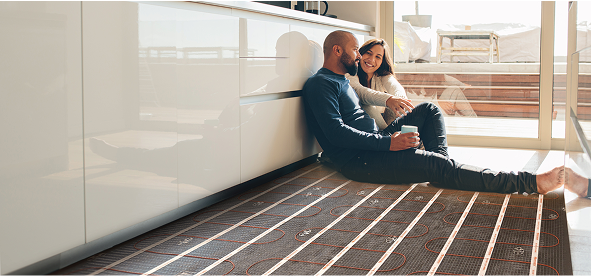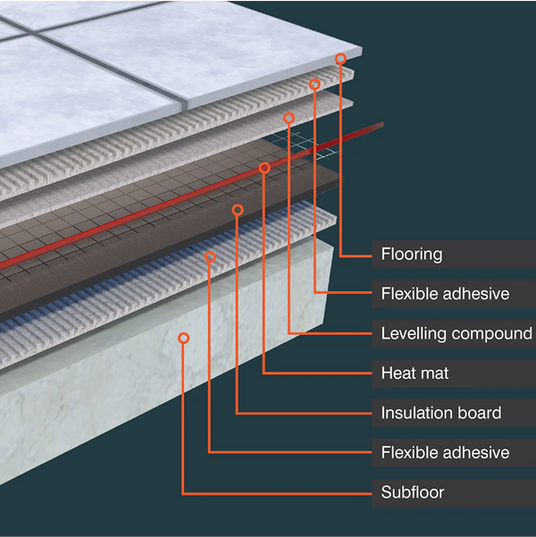Free CAD Designs

Every project is unique, that’s why we offer free CAD designs tailored to your space. Get a precise layout that ensures maximum efficiency and a flawless installation.
Our underfloor heating experts are available weekdays from 7am to 6pm.
All our technical staff are fully qualified to deal with your enquiry. Contact us for expert advice on underfloor heating.
Answer a few questions and we’ll get you on your way



Expert advice, quality products, and service you can trust. Everything you need for the perfect underfloor heating solution.

Every project is unique, that’s why we offer free CAD designs tailored to your space. Get a precise layout that ensures maximum efficiency and a flawless installation.

Our team is here to guide you every step of the way. From choosing the right system to installation advice and aftercare. Friendly, knowledgeable, and always just a call or click away.

Our team is here to guide you every step of the way. From choosing the right system to installation advice and aftercare. Friendly, knowledgeable, and always just a call or click away.

Our team is here to guide you every step of the way. From choosing the right system to installation advice and aftercare. Friendly, knowledgeable, and always just a call or click away.

We stand by the quality of our underfloor heating systems. That’s why many of our products come with lifetime warranties, giving you long-term peace of mind.


Electric Underfloor Heating Kit Builder
Design your perfect underfloor heating system in minutes. Our Kit Builder makes it easy to create a custom electric heating kit tailored to your needs
Whether you’re undertaking a renovation or a new build, the Kit Builder is a valuable resource for designing an efficient and tailored underfloor heating system.
Not sure? Our team is always on hand to help point you in the right direction. Call us on 01268 567016
Introducing the Protouch iQ thermostat range! Designed for modern smart homes.

Underfloor heating has become an extremely popular choice for homeowners looking for efficient and comfortable ways to heat their home, offering several advantages over radiators.
Underfloor heating is great at evenly heating a room, unlike radiators, which can create hot and cold spots. Underfloor heating also operates at lower temperatures than radiators, allowing it to work effectively with renewable energy sources, such as heat pumps and solar panels - reducing energy consumption and lowering heating bills, making it a cost-effective choice.
Underfloor heating works seamlessly under various types of flooring, including tiles, wood, and carpet, allowing homeowners to choose their preferred flooring without compromising on comfort or heating performance.
Underfloor heatingis not expensive to run and can be seen to be a more cost-effective system to run in the long term when compared to traditional heating systems such as radiators. Studies have shown that the yearly cost to run underfloor heating in a bathroom costs less yearly than running your washing machine!
The most efficient way to run underfloor heating will depend on your property’s needs. For retrofitting existing floors or smaller areas, electric underfloor heating is a practical option. However, water underfloor heating systems are generally more efficient for larger spaces, especially when paired with a heat pump or boiler. Consult with our heating experts to discover the best type of underfloor heating to meet your specific needs and budget.
Underfloor heating can be cheaper to run than radiators. It is important to mention that whilst installation costs may be higher, underfloor heating operates at lower temperatures, leading to lower yearly energy consumption and heating bills. When paired with renewable energy sources like heat pumps, the running costs can decrease even further!
Underfloor heatingdefinitely is enough to heat a house, as long as the system has been well insulated, installed and designed correctly, as well as the type of system selected being powerful enough for the size of room that you have to heat.